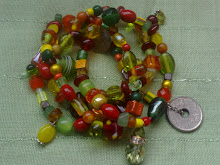This week (7th July to 14th July) is Srebrenica Memorial week and is dedicated to commemorating the lives that were lost in the
genocide at Srebrenica in July 1995: 8,000 Bosniaks, mainly men and boys.
This is something that is very close to my heart. I was in high school when the Bosnian war
broke out and I remember the child refugees from Bosnia coming to my school. The
whole Bosnian war made me re-think my place in society. If these people who were so well-integrated and
even intermarried, who weren’t visibly religious, who even looked like everyone
else (i.e. white) were separated out and targeted - what hope did we have? We
who looked so different – brown, in hijab, from another country.
The children who came to our school also made me realise how
similar they were to us – the music they listened to, the things they were interested
in, it brought home how war had come to Europe, to people like us, who could ever
imagine such a thing – war happened to those far away who were nothing like us.
At the start of the week I attended a minutes silence for the
victims of the genocide where the Remembering Srebrenica flag was raised.
After this, we went to a local masjid where a talk was held with
accounts from a survivor of the Bosnian war and an Ughiur Muslim, both talking about
their experiences
Aziz Isa Elkun talked about the history of the Uighur Muslims and
their current plight in China. He shared
a moving documentary he made about his story. This was followed by his
recitation of a poem he had written dedicated to a friend that had been placed
in a re-education camp.
Safet Vukalic, a survivor of the ethnic cleansing in Prijedor,
Bosnia shared a harrowing account of how Bosnian men were taken to the camps
including his brother and dad. He
survived as a 16-year-old because his mother stopped him from going with the
men. His was a devastating account of
the way the international community failed those in the concentration camps and
the language the media used to create doubt about the victims. He explained how although some of the lead
perpetrators of the genocide are dead and gone, the structures, the politics,
the rhetoric of the genocide prevails in Europe.
A moving commemoration but also a call to speak up about the situation
of the Uighur and not be complacent.





































No comments:
Post a Comment